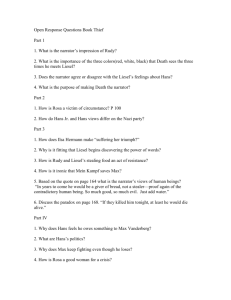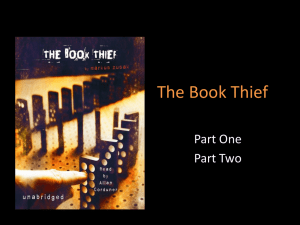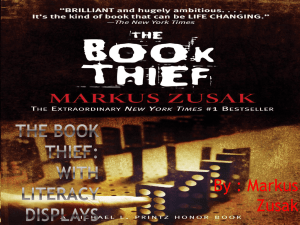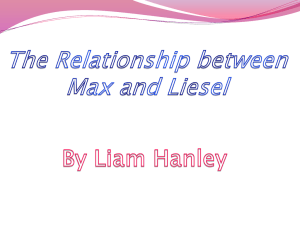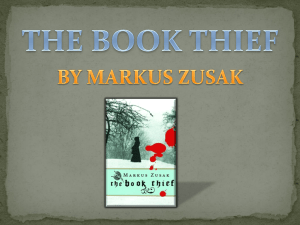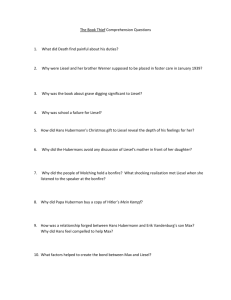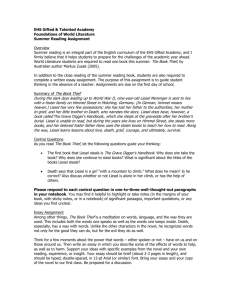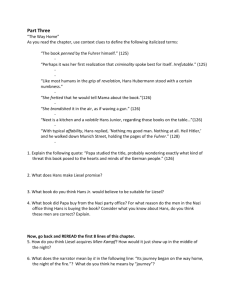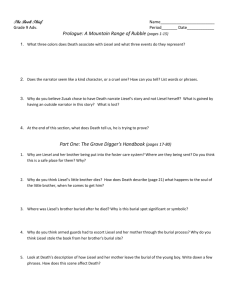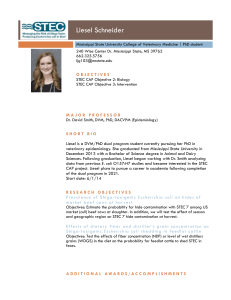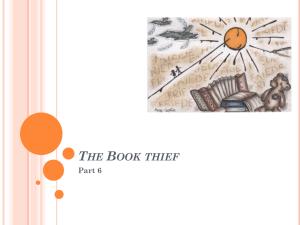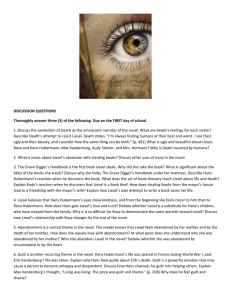Further Reading Book Discussion Guide
advertisement
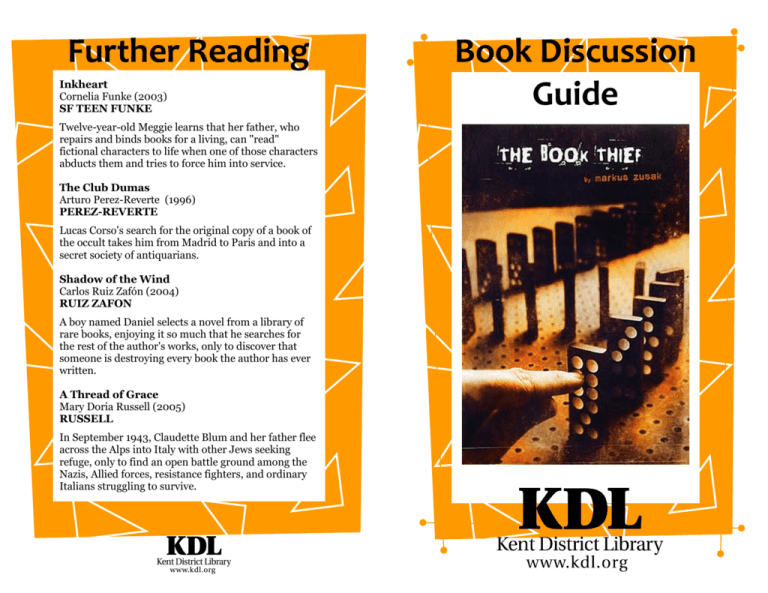
Further Reading Inkheart Cornelia Funke (2003) SF TEEN FUNKE Twelve-year-old Meggie learns that her father, who repairs and binds books for a living, can "read" fictional characters to life when one of those characters abducts them and tries to force him into service. The Club Dumas Arturo Perez-Reverte (1996) PEREZ-REVERTE Lucas Corso's search for the original copy of a book of the occult takes him from Madrid to Paris and into a secret society of antiquarians. Shadow of the Wind Carlos Ruiz Zafón (2004) RUIZ ZAFON A boy named Daniel selects a novel from a library of rare books, enjoying it so much that he searches for the rest of the author's works, only to discover that someone is destroying every book the author has ever written. A Thread of Grace Mary Doria Russell (2005) RUSSELL In September 1943, Claudette Blum and her father flee across the Alps into Italy with other Jews seeking refuge, only to find an open battle ground among the Nazis, Allied forces, resistance fighters, and ordinary Italians struggling to survive. Book Discussion Guide About the Book Trying to make sense of the horrors of World War II, Death relates the story of Liesel--a young German girl whose bookstealing and story-telling talents help sustain her family and the Jewish man they are hiding, as well as their neighbors. Discussion Questions 1. Death states, “I’m always finding humans at their best and worst. I see their ugly and their beauty, and I wonder how the same thing can be both.” (p. 491) What is ugly and beautiful about Liesel, Rosa and Hans Hubermann, Max Vandenburg, Rudy Steiner, and Mrs. Hermann? Why is Death haunted by humans? 2. What is ironic about Liesel’s obsession with stealing books? 3. What does the act of book thievery teach Liesel about life and death? Explain Rudy’s reaction when he discovers that Liesel is a book thief. How does Liesel’s own attempt to write a book save her life? 4. Liesel believes that Hans Hubermann’s eyes show kindness, and from the beginning she feels closer to him than to Rosa Hubermann. How does Hans gain Liesel’s love and trust? Why is it so difficult for Rosa to demonstrate the same warmth toward Liesel? Discuss how Liesel’s relationship with Rosa changes by the end of the novel. 5. Guilt is a powerful emotion that may cause a person to become unhappy and despondent. Discuss how Hans channels his guilt into helping others. Explain Max Vandenburg’s thought, “Living was living. The price was guilt and shame.” (p. 208) Why does he feel guilt and shame? 6. Compare and contrast the lives of Liesel and Max Vandenburg. How does Max’s life give Liesel purpose? At what point do Liesel and Max become friends? What is the significance of the story Max gives Liesel, “The Standover Man.”? 7. Hans Junior, a Nazi soldier, calls his dad a coward because he doesn’t belong to the Nazi Party. He feels that you are either for Hitler or against him. How does it take courage to oppose Hitler? There isn’t one coward in the Hubermann household. Discuss how they demonstrate courage throughout the novel. 8. Describe Liesel’s friendship with Rudy. How does their friendship change and grow throughout the novel? Death says that Rudy doesn’t offer his friendship “for free.” (p. 51) What does Rudy want from Liesel? Discuss Death’s statement, “The only thing worse than a boy who hates you [is] a boy who loves you.” (p. 52) Why is it difficult for Liesel to love Rudy? 9. Liesel Meminger lived to be an old woman. Death says that he would like to tell the book thief about beauty and brutality, but those are things that she had lived. How does her life represent beauty in the wake of brutality? Discuss how Zusak’s poetic writing style enhances the beauty of Liesel’s story. Courtesy of Harper Collins
